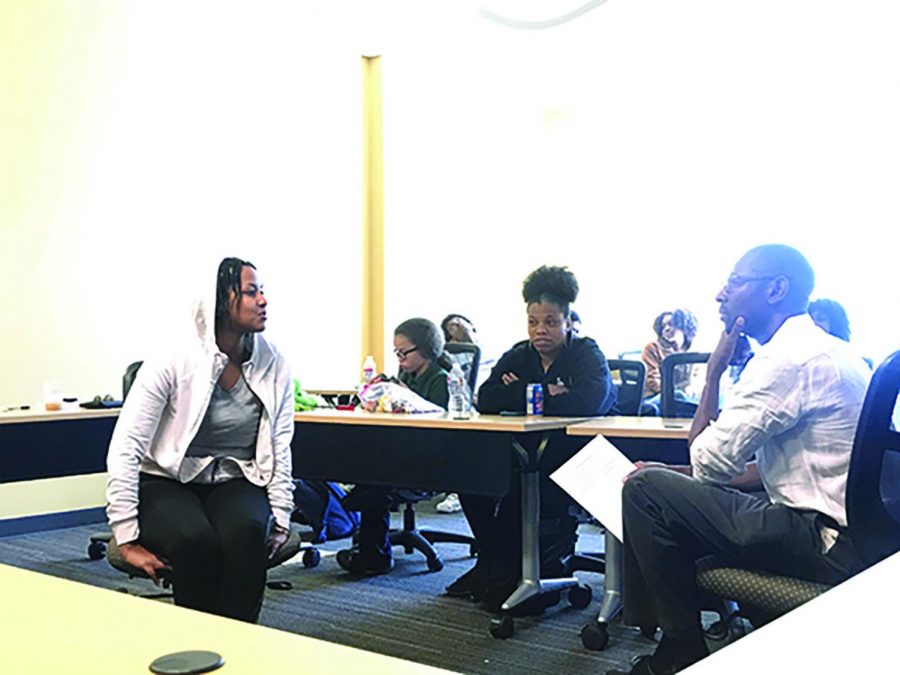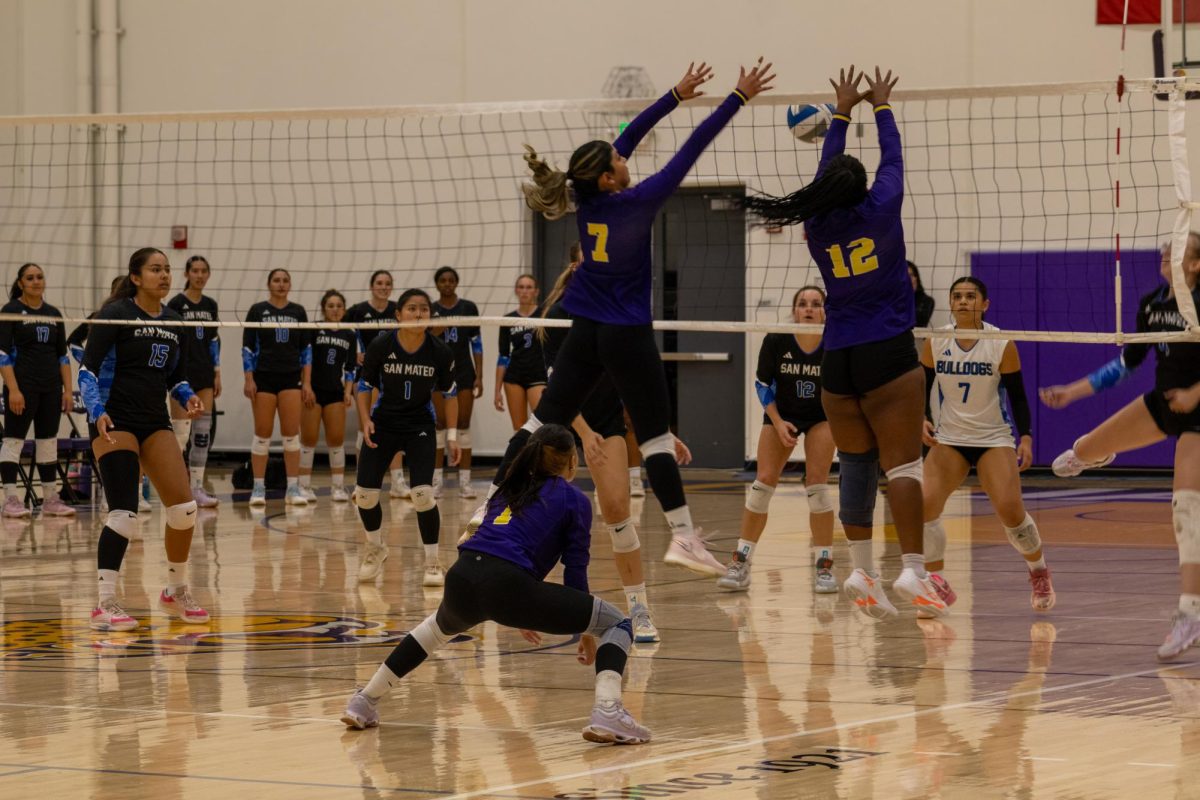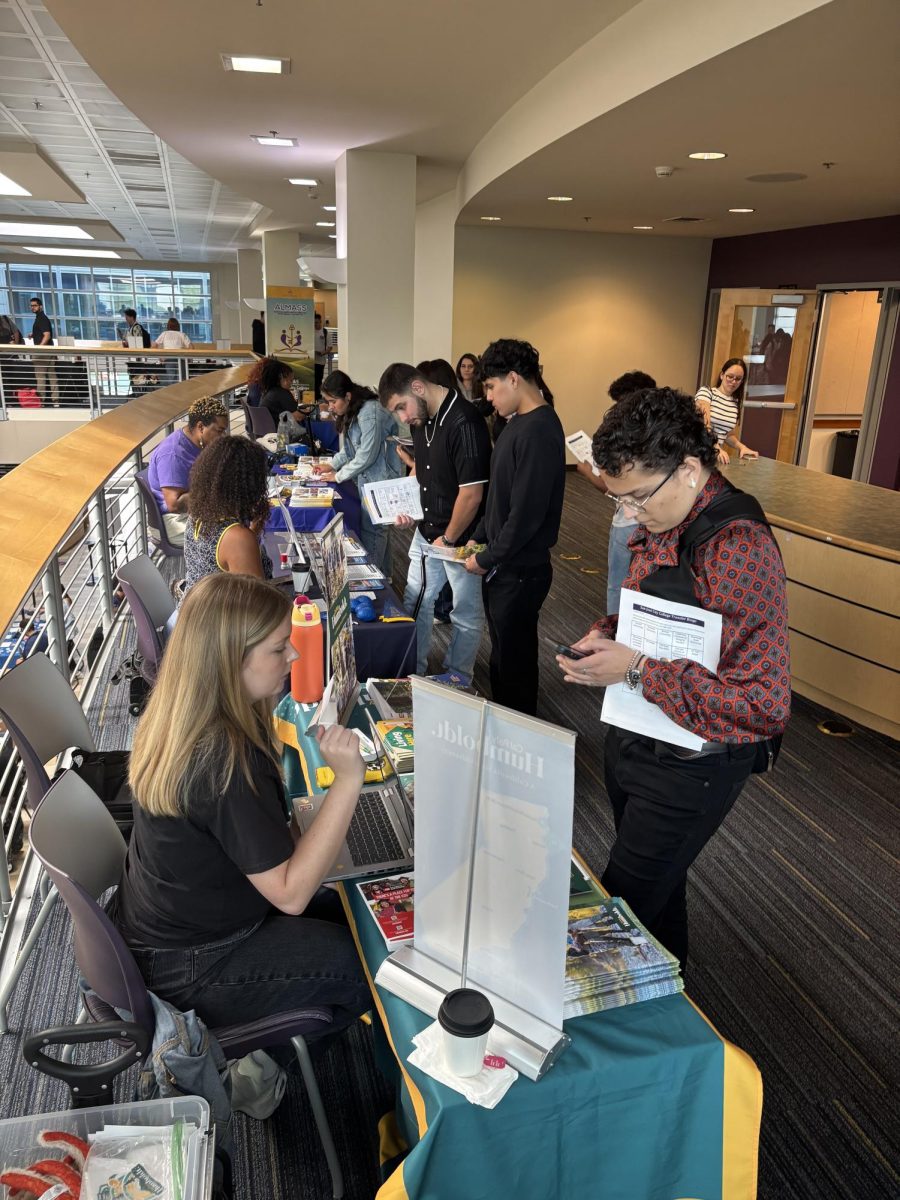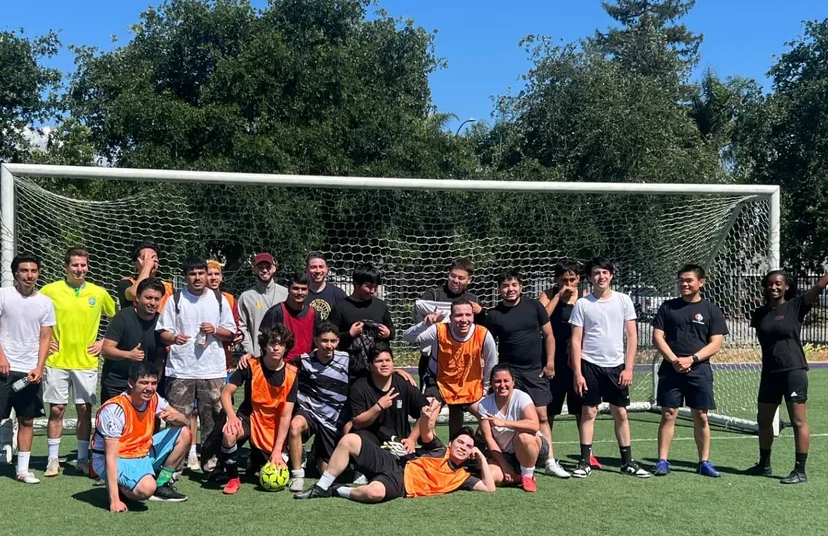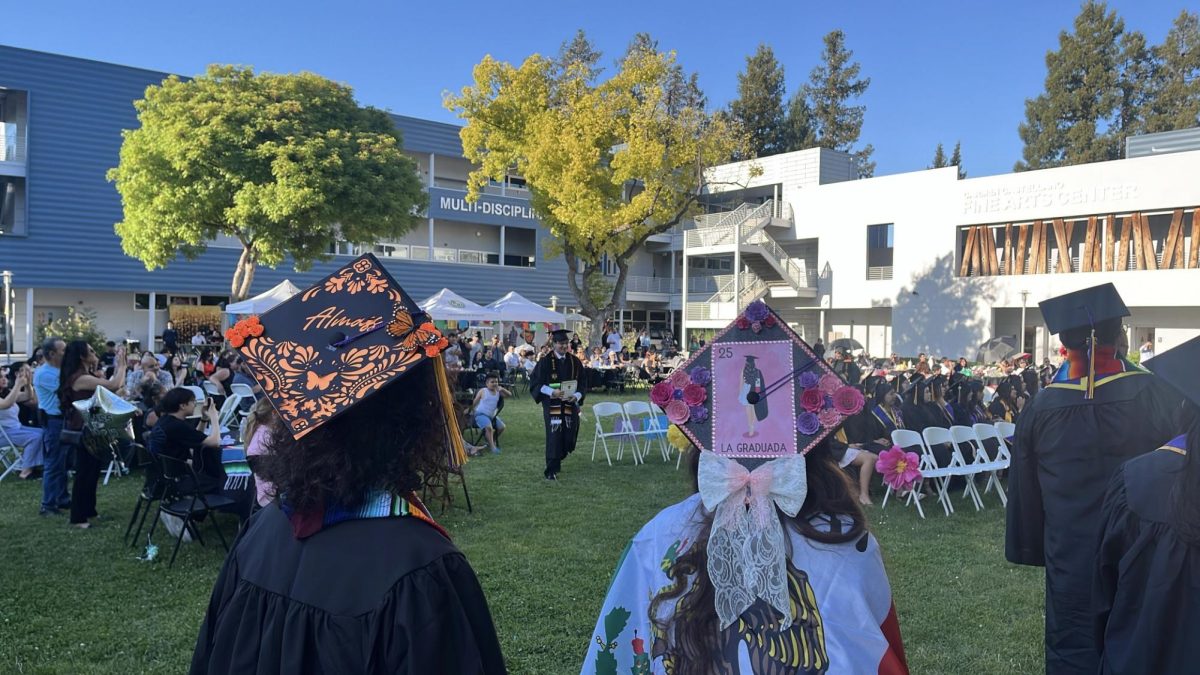Persistence in supporting the educational needs of African-American students is demonstrated through the Umoja Program that helps to improve the graduation rate and transfer rate of the students in community colleges.
This program is reclaiming its place on campus. Since Khalid White resigned as program coordinator in the spring semester of 2018, the campus searched for a new coordinator.
This program has proven to help African-American students prevail in all aspects of life.
“When I coordinated the Umoja Program, I saw students that were able to excel academically and inter-personally, achieve their educational and career goals, in some cases, gave them a greater sense of self,” White said. “They became more in touch with their identity, their excellence, their greatness within. We had a lot of student success over the decade I coordinate Umoja.
White said it was important that the program gained a place back on campus as it gives African-American students the opportunity to have classes together, their own study hall, club meetings, personal counselors, and even off site events to go in order to create a bond.
“Students benefit from a program tailored to their needs,” White said. “Students of African ancestry need programs, spaces and opportunities, intentionally designed for their successes.”
He further said, “Black people need something that deals with what we have experienced collectively, the things we face and the struggles that affect us. There has to be an intentional program that empowers us in ways that are specific to our needs, goals and ambitions. That’s equity. Without a socio-academic program like Umoja, black students suffer.”
In fall of 2018, Dedrick Griffin agreed to be the new head coordinator.
“We are at the beginning stages of the program having a voice on campus again,” Griffin says.
The number of students who participated in Umoja was very slim. They lacked knowledge of where the program stood, Griffin said.
In the fall of 2018, there were “two or three people that considered themselves Umoja students,” Griffin said. “The program seemed to have gone into hibernation.”
Griffin said, “There are about 50 students enrolled into the program now (spring 2019). The students we have now were found mostly by word of mouth, along with the counselors referring the students to the campus.”
Umoja program held meetings, workshops and events that helped the students stay motivated for school as well as their personal lives.
The Umoja program is a way for students to bond off and on campus to stay alive.
“The Umoja program has helped me in transferring and
preparing for the real world,” Lihem Russom, an SJCC student said,
To continue to keep the Umoja program successful, Griffin said “One of the challenges is that the school did not really provide or allocate a budget for the program for us to provide the support and services that we needed to do. So, luckily I was able to write and get a grant so that we can get some money.”
Getting a grant will allow Griffin to be able to provide services for students to be able to borrow textbooks so that they would not have to worry about the cost of textbooks.
“That’s not just for the Umoja classes but also for their other classes to be able to have a lending library,” Griffin said.
Books are not the only thing students suffer with academically.
“We plan to create vouchers for students that have transportation issues that are
causing them to not get to their classes,” Griffin said. “We want to stop that from being an excuse by checking in with students more as well as asking for a progress report to help the students get support when needed before it is too late.”
Griffin further said, “There will be a new Umoja space next fall where students can do their homework, print their papers, get tutoring or just hangout. It is important to see people that look like you. People don’t realize that for someone to feel like they don’t belong can make them want to drop out. But having
the community will make a big difference.”
Jammaar Hall, sophomore, explains how the program has helped him:
“I have been in the program once I started here and didn’t know too much about it. So it was kind of hard to know where to go. But since I found my way the program has helped a lot.
I didn’t expect to get involved inside the leadership room, but it has helped a lot in just getting involved to work with the program and help it get started back up again.”
Hall was on of handful of students to attend the A2MEND conference.
“It was important to go to the event, as it was motivational,” Hall said. “By the second day of the event, I saw how important it was to have the Amend program on campus for future students.”
Hall said he was able to gain inspiration through the Umoja program and is now planning to create the amend program for next fall. If Hall and Russom have had such a positive and motivational experience within their five months of being in Umoja,
the outlook for the program is positive.

